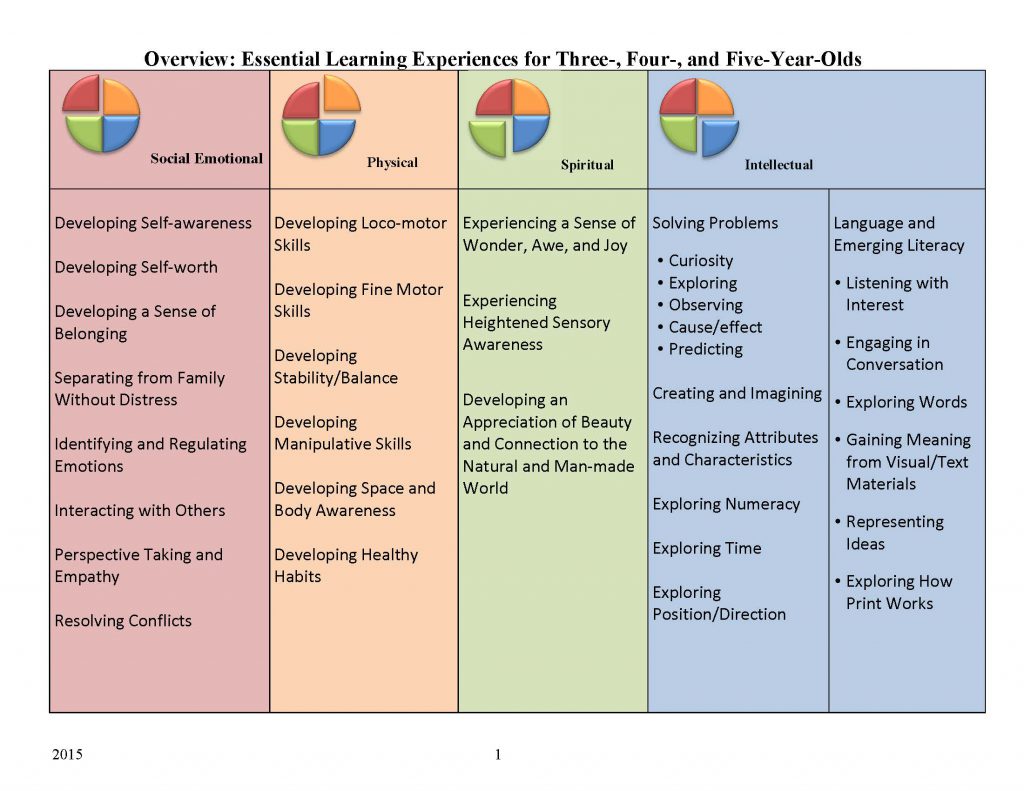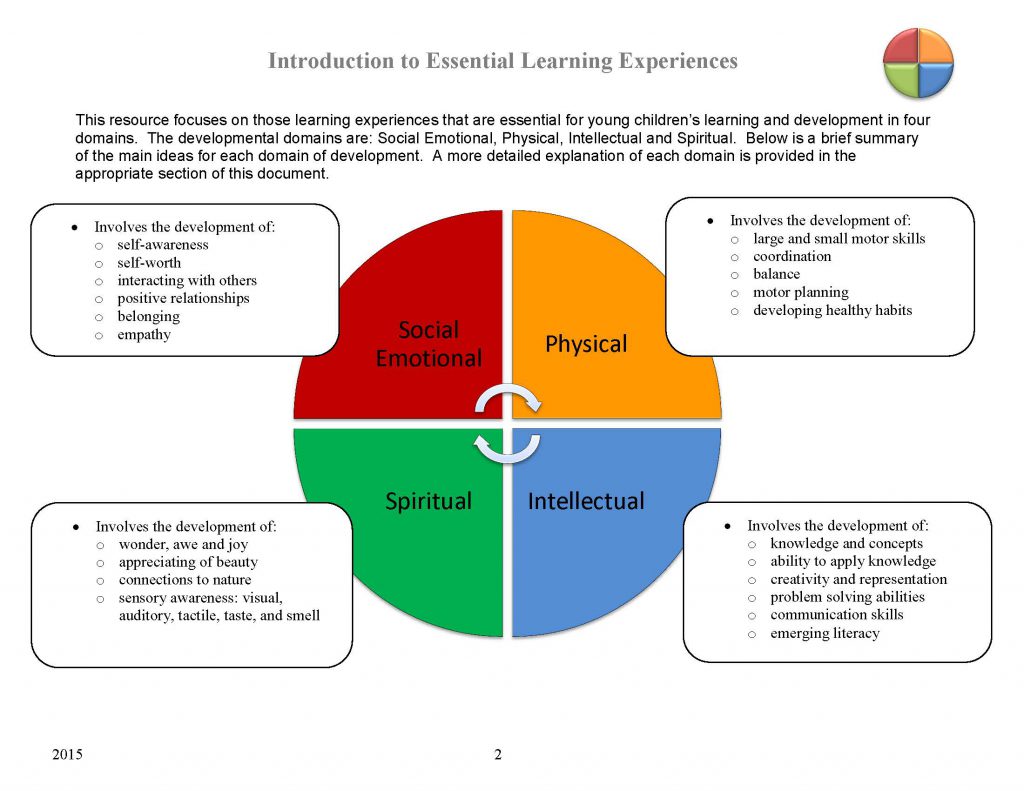Full Guide available here:
Quality early learning programs incorporate the following principles
into their daily practice.
Children as Competent Learners
• appreciate that children are active learners, drawing on their
experiences to construct their own understandings of the world
• accept that children are competent co-learners with educators and
learn best when their ideas are valued, their physical needs are
met and they feel psychologically secure
• acknowledge that children demonstrate their various ways of
knowing, doing and learning through their multiple ways of
communicating
Holistic Development and Learning
• integrate the domains of social-emotional, physical, intellectual,
and spiritual development into learning experiences
• base practice in early childhood education on current knowledge
and research about child development and learning
• recognize that individual children develop at different rates
• support children’s development with opportunities to advance
children’s growth beyond their current level of knowledge, skills,
interests, attitudes and abilities
Strong Positive Relationships
• respect the dignity, worth and uniqueness of children in the
context of family, culture and society
• partner with children, families and community in program
planning
Stimulating and Dynamic Environments
• facilitate and guide play, exploration and discovery as important
processes in enhancing children’s holistic development
• promote the holistic nature of children’s learning in an
environment that stimulates exploration, curiosity and interactions
with others
• encourage children’s independence, responsibility and
participation in the learning environment, family and community
These principles reflect a holistic approach to children’s development
and learning. They provide a foundation, set the direction for the
early learning program in subsequent sections and offer guidance for
effective practices.

